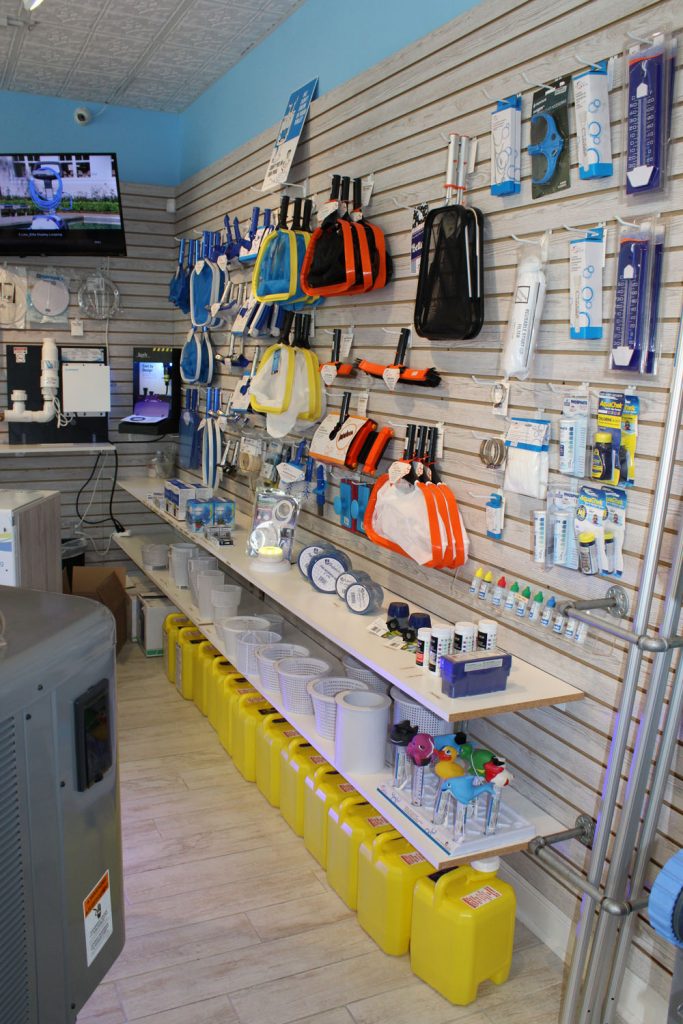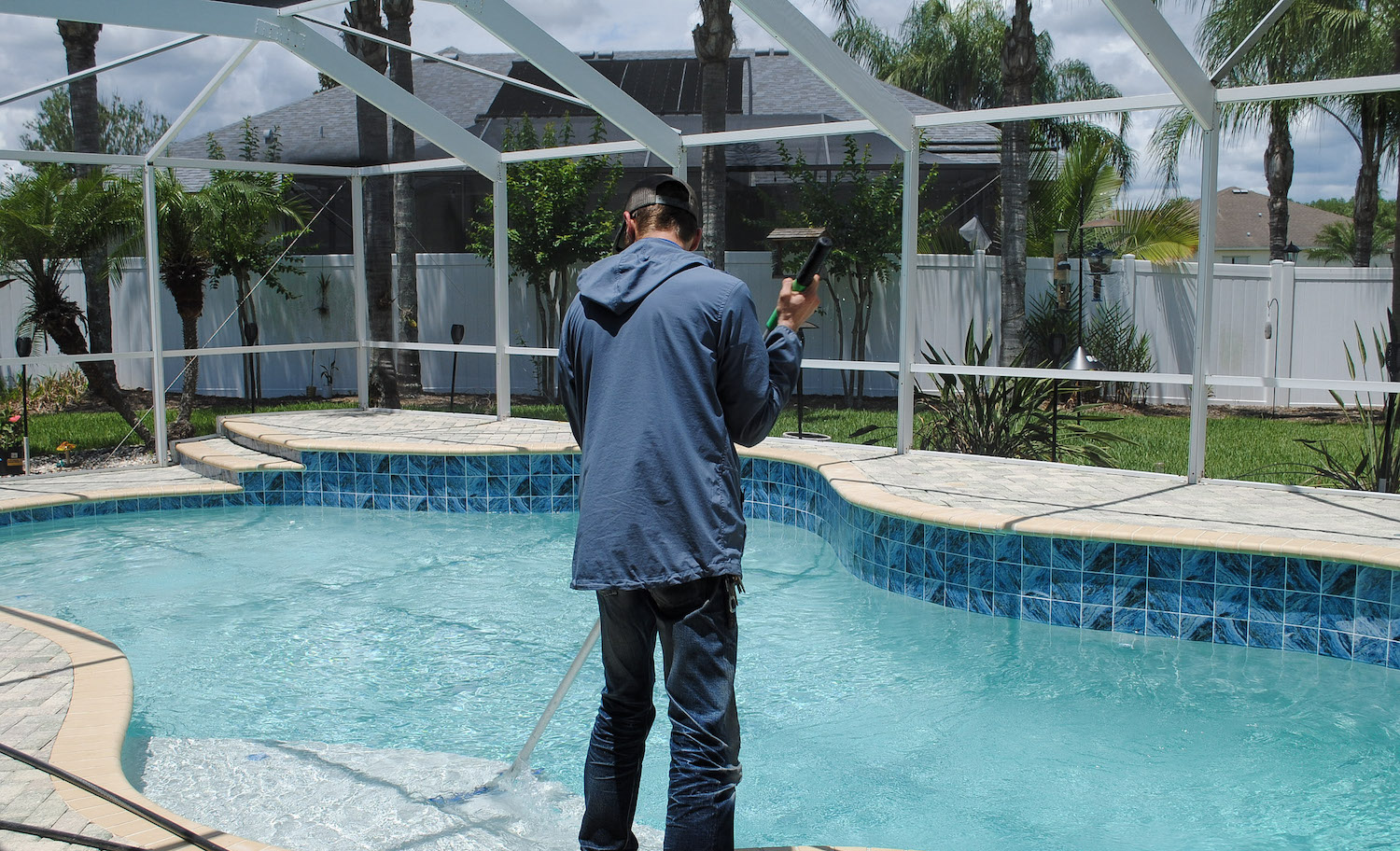Bromine vs Chlorine: Choosing The Right Sanitizer
While chlorine is practically a household name, there are many homeowners that may not be aware of the power of bromine, another sanitizing agent for swimming pools and hot tubs that keep your water looking crisp and clean.
For pool owners, keeping their water clean is a top priority, but with a number of cleaning opinions available, which choice is considered the best? While both Chlorine and Bromine are effective at eradicating bacteria and other unwanted growth, each differ when comparing cost, effectiveness, dosage, as well as the likelihood for irritation.
Throughout this article we will compare both Bromine and Chlorine so that you can make an informed decision on what cleaning solution may work best based on the specific needs of your pool or hot tub.
Comparing the properties of bromine and chlorine
To begin, let’s go over the properties of both bromine and chlorine and how they differ from each other. Bromine in its natural state is a reddish brown liquid that cleans your pool or hot tub by the means of a process called Ionization. Although this process leaves your water slightly shy of crystal clear, it doesn’t emit the same harsh smell that you get when swimming in water treated with chlorine.
On the other hand, when chlorine is added to your water, your pool or hot tub oxidizes any bacteria or contaminants as a way to keep the pool clean. Unlike bromine, the use of chlorine will leave your water crystal clear; however, there will be a need to consistently monitor the PH levels of the pool as chlorine needs to be stabilized in order to keep both you and your pool safe. Do not forget to test water regularly.
Available forms

Luckily for us, there are a few different ways you can opt to purchase your pool cleaners. Both chlorine and bromine come in multiple forms, with chlorine offering the most diversity.
When treating your pool with chlorine, you can opt for tablets, granules, sticks, or simple liquid chlorine. Although there are a number of options at your disposal, the chlorine tablets are the most frequently used as they offer a highly controlled, slow release way to keep your pool clean. Additionally, chlorine tablets come pre-stabilized making pool maintenance incredibly simple.
Similar to chlorine, bromine comes in both a tablet and granule form with the bromine tablets being the most frequently used method for sanitization. The tablets will be placed in a dispenser where it will be distributed throughout the pool or hot tub, whereas the granules are more reliable for shock treatments.
Recommended dosage for your pool or hot tub
Recommended dosage for your pool or hot tub will be dependent on a number of factors. For best results, follow the instructions of the products manufacturer and keep in mind what environmental conditions may play a role in determining the correct dosage.
With that being said, on average, chlorine should be maintained in pools at around 1 to 3 ppm (parts per million) and bromine at around 2 to 4 ppm for effective results. Due to the elevated temperatures of hot tubs, the dosage amounts would need to be slightly higher to accommodate for the heat. In hot tubs, try to maintain 3 to 5 ppm for chlorine and 4 to 6 ppm for bromine.
Related Article: How Much Chlorine to Add in Your Pool?
Effectiveness
Fortunately for you, both methods of cleaning your pool are effective and do their job well, but each chemical solution has its own benefits depending on your needs. For example, bromine is generally used in hot tubs over pools since it’s more effective in high temperatures. Bromine also tends to last longer in the water, making it a great choice for those who want to be less involved with frequent maintenance. On the other hand, chlorine offers a clearer way to clean your pool and is more resilient when exposed to direct UV light.
Cost of bromine vs chlorine
When considering which product to use, it is very likely that cost will come into play when going over determining factors. Overall, bromine tends to be the more costly way to sanitize your pool. Chlorine is both less expensive and easily accessible.
Potential for irritation
Although both of these products are chemicals, chlorine can really impact individuals with sensitive skin. To avoid eye and skin irritation, bromine would be the better option for those with sensitive skin looking to mitigate as many side effects as possible.
How to decide between bromine and chlorine for your pool or hot tub
In the end, what product works best for you is going to be determined by your location, your desired level of upkeep, and if you’re treating a pool or hot tub. Either way, you can rest easy knowing your water will be clean and clear regardless of what pool or hot tub chemicals are used.
Related Article: Cheap Pool Chemicals: Does Brand Matter?
GPS Pools provides supplies and maintenance in the Tampa area!
Whether you have a pool or hot tub, you can trust GPS Pools for all of your supplies and maintenance needs. Serving the greater Tampa area, you can trust us to take care of both residential and commercial pool needs. Come visit our store and see for yourself!

